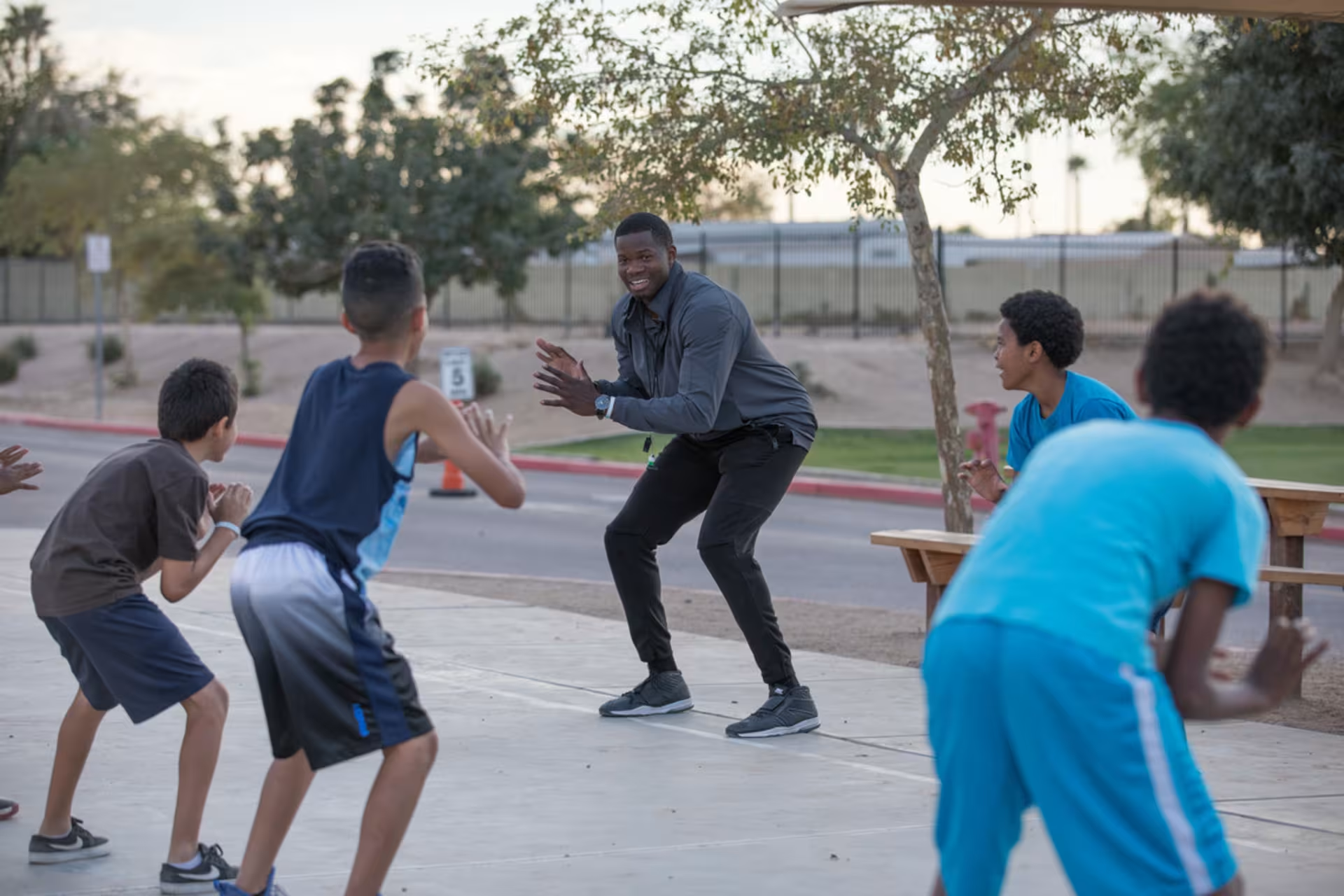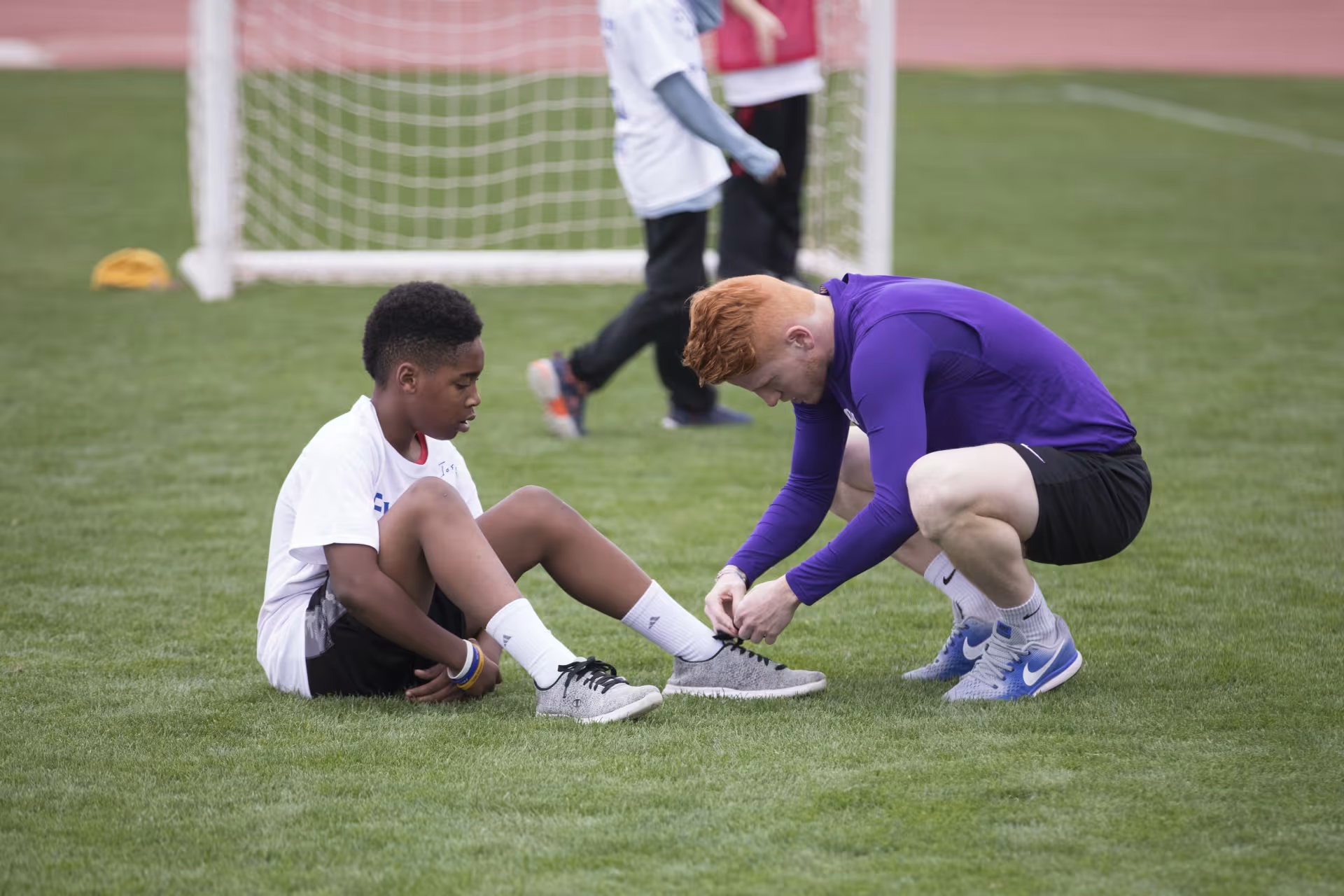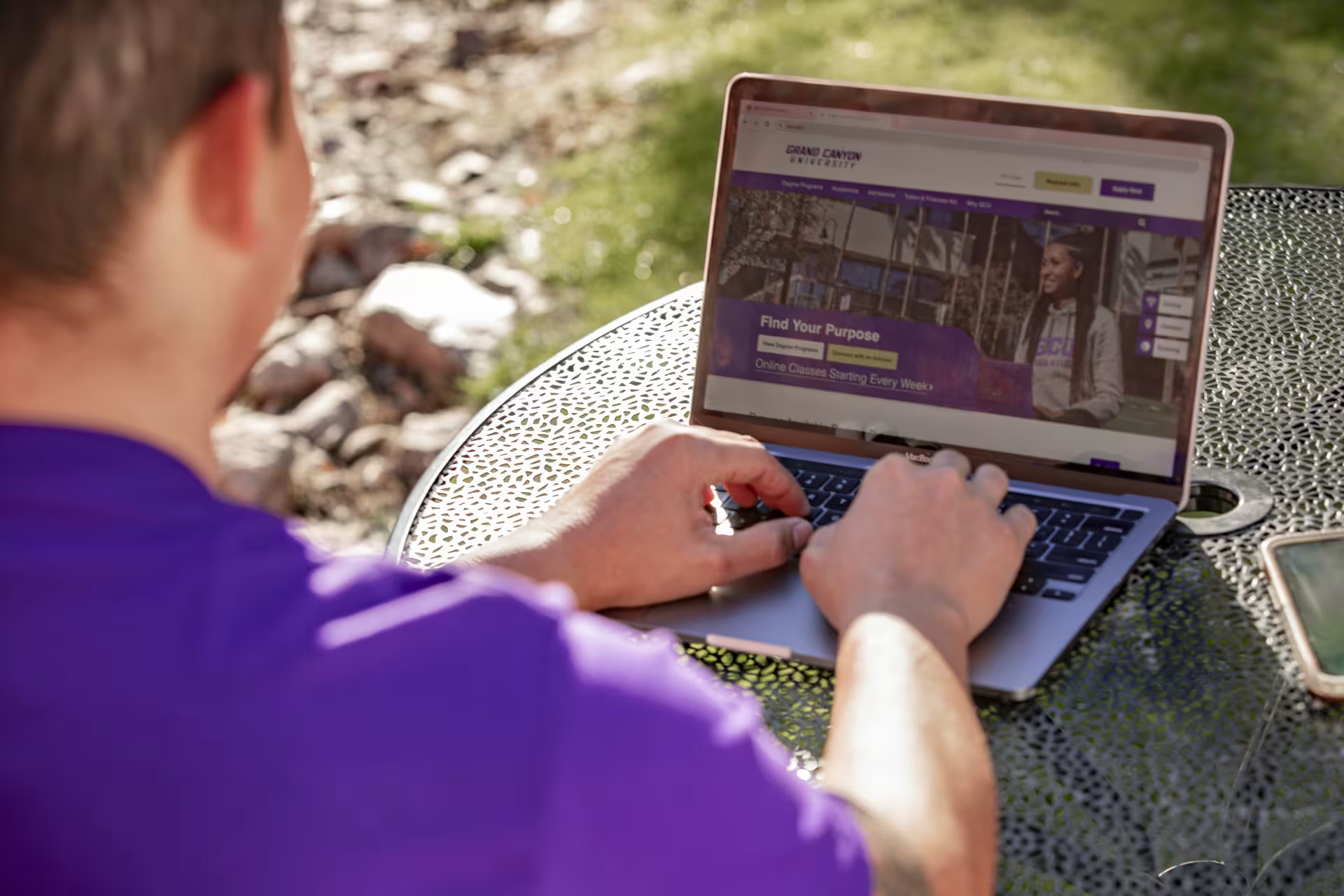
BS in Physical Education (PE) Degree
Discover Strategies To Motivate and Inspire Students
Pursue your passion for physical fitness and education with the Bachelor of Science in Physical Education (PE) degree at Grand Canyon University. Offered through a collaborative initiative between the College of Natural Sciences and the College of Education, this program is designed for aspiring teachers who are enthusiastic about sports, wellness and shaping young lives. As a physical education teacher, you’ll have the opportunity to serve as a powerful role model and motivator, helping preK-12 students make healthy choices, build confidence and reach their full potential.

Campus: $8,250 per semester [More Info]
Up to 90 credits, only 84 can be lower division
Credits: Fill out the Lopes Eval to find out what will transfer
Admission Requirements (Bachelor's)
- 16+ years old
- High School Graduate
- 3.0+ Unweighted GPA
OR 2.5+ Unweighted GPA and
- ACT: 19
- SAT: 1000*
Admission requirements may differ based on degree level, program and modality, or transfer status. Some programs of study may require a higher GPA and/or other qualifying criteria for admission. Please review full admission and program requirements in the University Policy Handbook.
*Math and reading only on a 1600 point scale (test date after 3/1/2016). SAT score of 1380 required for 2400 point scale (test date before 3/1/2016).
Prepare To Teach and Inspire Wellness Through Movement
GCU’s PE degree offers future educators the tools to promote lifelong wellness. This program helps develop compassionate educators through a faith-integrated curriculum and opportunities for hands-on teaching experience. As a physical education major, you can build core competencies that prepare you to create safe, positive learning environments while meeting the diverse needs of students with varying abilities.
This modern curriculum is aligned with Interstate Teacher Assessment and Support Consortium (InTASC) principles. All coursework adheres to the national standards for Physical Education Teacher Education (PETE) as established by SHAPE America, which is the national organization for physical educators.


PE Degree Course Topics
The bachelor’s degree in physical education coursework is designed to prepare future educators to lead their classrooms with confidence and compassion. Each course blends theory and practical application for creating engaging physical education experiences.
Some of the topics you study include:
Human development and function
Fitness development and assessment
Techniques and best practices for safe movement
Physical education for students with disabilities
Instructional technology
Teaching methods for individual and team sports
Develop Your Skills in an Educational Setting
All teacher candidates working on a physical education degree are required to complete two student teaching experiences. Under the supervision of a certified, experienced physical education teacher, our candidates will apply their knowledge to the classroom by completing a total of 105 practicum/field experience hours. In addition, in their final semester, each candidate will dedicate two eight-week sessions to supervised student teaching where each session focuses on teaching in a different setting, such as teaching elementary education and teaching secondary education.
By successfully completing this program, including the built-in practicum and student teaching experiences, physical education teacher candidates are eligible for a K-12 education teaching credential in the state of Arizona. Check with your state to see if the program meets your state requirements for licensure.
Career Paths for Physical Education Degree Graduates
As a bachelor’s degree in physical education candidate, you can learn how to turn your passion for fitness and sports into a career with hopes of inspiring students. Graduates of the BS in Physical Education degree program may pursue job opportunities such as:
The Bachelor of Science in Physical Education degree program at GCU leads to initial teacher licensure. This major in physical education gives candidates the opportunity to pursue all necessary certifications required by the state in which they wish to teach. Check with your state to confirm if the program meets your state requirements for licensure.
Number of new jobs estimated to open for high school teachers from 2024 to 2034(See disclaimer 1)
Pursue Your Physical Education Degree From an Accredited University
GCU has been institutionally accredited by the Higher Learning Commission since 1968. Additionally, the Bachelor of Science in Physical Education degree is programmatically accredited through the Association for Advancing Quality in Educator Preparation (AAQEP).
Frequently Asked Questions
If you’re considering a physical education degree, we’ve gathered answers to your most frequently asked questions.
Is a physical education degree hard?
Can you be a PE teacher without a degree?
Is a physical education degree worth it?
Why is physical education important?
Program Curriculum
General Education Requirements
Required General Education Courses
Core Courses

To get started on your BS in Physical Education degree, complete the form on this page to connect with a university counselor.
If you are seeking licensure/certification, please refer to the "Accreditation and Compliance/State Disclosures” link for the specific program of interest’s website for your location and/or employment state’s licensure requirements, per 34 CFR 668.14(b)32 and 668.43(c).
- COVID-19 has adversely affected the global economy and data from 2020 to 2023 may be atypical compared to prior years. Accordingly, data shown is effective August 2025, which can be found here: U.S. Bureau of Labor Statistics, Occupational Outlook Handbook, High School Teachers, retrieved on Sept. 15, 2025.
- Centers for Disease Control and Prevention. (2024, June 25.) About Physical Activity in Schools. CDC. Retrieved Sept. 15, 2025.


